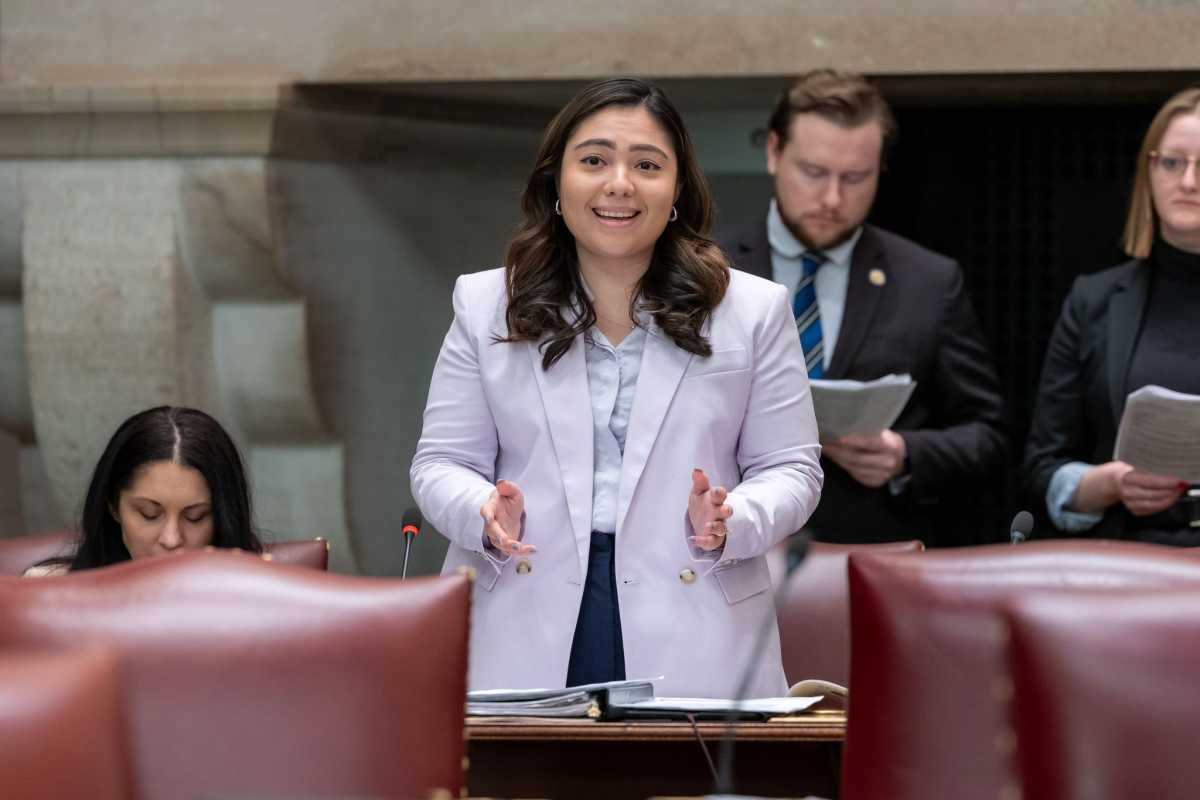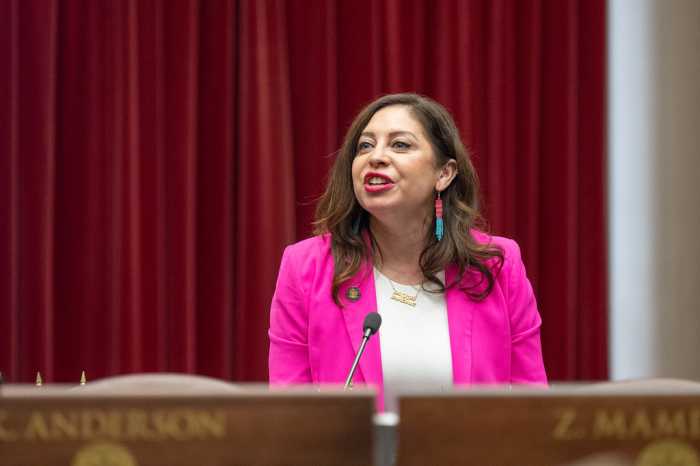New York State Senator Kristen Gonzalez, who represents parts of western Queens, successfully passed two major bills designed to regulate the growing use of artificial intelligence in public and private systems.
The legislation marks a significant milestone in Gonzalez’s broader “Safe and Responsible Artificial Intelligence” package and positions New York as one of the first states to implement comprehensive guardrails on AI technologies.
The two bills — the New York Artificial Intelligence Act (S1169A) and the Automated Decision-Making Systems in Government Act (S7599C) — were passed in the Senate last week, with the latter also clearing the Assembly on Monday, June 16. Both measures were introduced as part of Gonzalez’s AI Week initiative in May, which focused on educating the public and lawmakers about the risks and potential of AI systems.
“The passage of these two bills is about promoting safe and responsible development, deployment, and use of AI systems, not about creating more red tape or stifling innovation. The New York AI Act and this expansion of the already enacted LOADinG Act represent my commitment to consumer and worker protections. This is the time for New York to lead in the fight for a future where innovation benefits the working class,” said Senator Gonzalez.
Gonzalez, who chairs the Senate Committee on Internet and Technology and whose Senate District 59 includes Long Island City and Astoria, said the bills aim to ensure that AI systems are transparent, accountable, and serve the public interest—especially as their use expands in areas like employment, housing, education, and public services.
The New York Artificial Intelligence Act requires companies to disclose when they use AI tools in high-stakes decision-making processes, such as hiring, housing applications, school admissions, healthcare eligibility, and legal services. The bill mandates regular impact assessments and the implementation of fairness, accountability, and non-discrimination standards. While it passed the Senate, the bill will need to be taken up by the Assembly in a future session.
The second bill, the Automated Decision-Making Systems in Government Act, mandates that any automated systems used by state agencies — especially in areas like public assistance or civil liberties — undergo regular impact assessments and include meaningful human oversight. It builds on 2024 legislation passed by Gonzalez and Assembly Member Steve Otis, which applied to public schools, SUNY, CUNY, and other government-affiliated institutions. The new bill expands those requirements to state, county, and municipal agencies.

“Instituting guardrails on these technologies in New York State is especially important at this moment, when Republicans in Congress are seeking to ban state and city-level AI regulation for the next 10 years. This would cause a detrimental interruption in the passage of meaningful legislation that protects consumers while encouraging innovation. We must stand up for consumers, even as this federal administration backtracks on responsible AI,” Gonzalez said.
The bills received support from labor unions and national digital rights organizations.
“We commend Senator Gonzalez for her leadership,” said Mario Cilento, President of the New York State AFL-CIO. “This legislation helps ensure that public workers are not displaced by AI, and that those who rely on government programs and services are protected from discrimination and algorithmic bias.”
Kara Williams, a law fellow at the Electronic Privacy Information Center (EPIC), said the New York AI Act offers “urgently needed, commonsense protections” that give residents meaningful rights when AI makes decisions about them.
Ben Winters, Director of AI and Privacy at the Consumer Federation of America, agreed, saying: “It’s past time New Yorkers get commonsense protections for when AI is used to make decisions about their lives. The transparency and accountability provisions in these bills give people the information and opportunities to make the informed decisions they deserve.”
If enacted, the legislation would make New York one of the first states to regulate both public- and private-sector use of AI, joining California and Illinois in leading on algorithmic accountability.

































